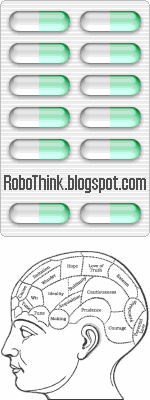Cognitive Bias in Education
In his most recent book, Synaptic Self, neuroscientist Joseph LeDoux says:
In most countries the education system is heavily biased towards hothousing cognitive skills. In fact, a person doesn't need a high level of emotional intelligence to obtain a Ph.D. Cognitive skills alone are sufficient. Although it is seldom mentioned, this bias may be contributing to the rising incidence of depression and other mood disorders. In the United Kingdom many schools have now introduced weekly sessions where children can discuss their feelings and learn relationship skills. Maybe this is a better solution than telling children and parents that they should rely on drugs or psychotherapy to maintain their emotional equilibrium. As the saying goes, "prevention is better than cure."
"[There is] an imperfect set of connections between cognitive and emotional systems in the current stage of evolution of the human brain. This state of affairs is part of the price we pay for having newly evolved cognitive capacities that are not yet fully integrated into our brains."Psychiatrists, psychologists and neuroscientists are not exempt from the anatomical handicap that Joseph LeDoux describes. On an evolutionary timescale the cognitive faculties of the human neocortex are a recent blip. It's the feeling part of the brain, the limbic system, which has an evolutionary pedigree that dates back to the time when mammals first appeared. And that was tens of millions of years before dinosaurs became extinct 65 million years ago!
In most countries the education system is heavily biased towards hothousing cognitive skills. In fact, a person doesn't need a high level of emotional intelligence to obtain a Ph.D. Cognitive skills alone are sufficient. Although it is seldom mentioned, this bias may be contributing to the rising incidence of depression and other mood disorders. In the United Kingdom many schools have now introduced weekly sessions where children can discuss their feelings and learn relationship skills. Maybe this is a better solution than telling children and parents that they should rely on drugs or psychotherapy to maintain their emotional equilibrium. As the saying goes, "prevention is better than cure."

<< Home